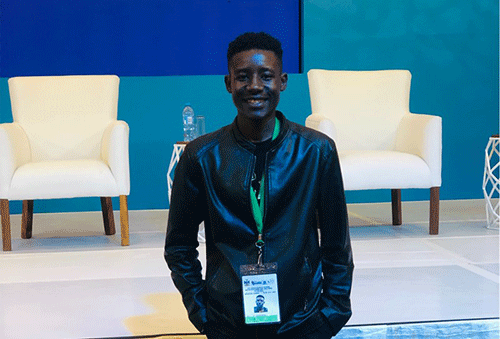Hilalius Ndeimana
Access to justice is a fundamental human right that ensures equal protection and fair treatment for all individuals within a legal system.
In Namibia, the issue of access to justice has been a pressing concern, with many facing obstacles in navigating the legal landscape. The high costs of litigation, limited availability of legal representation, and gaps in the provision of legal aid have created barriers for Namibians seeking justice.
In exploring the challenges faced by Namibians in accessing justice, the existing mechanisms for legal representation and aid, and the urgent need for reform to ensure equal access to justice for all. Litigation in Namibia, particularly in civil suits, can be financially burdensome. In order to pursue a civil suit successfully, individuals are often required to hire a private lawyer, which can be an expensive endeavour. The prescribed fees set by the courts may be recovered by the successful party, further adding to the financial burden. This high cost of litigation creates a significant barrier for individuals, especially those from less privileged backgrounds, who may struggle to afford legal assistance. Recognising the need to provide assistance to those who cannot afford legal representation, Namibia has established legal aid mechanisms. The Legal Aid Act allows for the provision of legal aid to individuals who meet certain income criteria, or have no income at all. This assistance is crucial in ensuring that individuals have access to legal representation, particularly in cases where their rights are at stake.
The Legal Assistance Centre (LAC) is one organisation which plays a vital role in providing free legal assistance in constitutional cases, and cases of public interest. The LAC relies on donations and sponsors to support its work.
Additionally, the University of Namibia has a Legal Aid Clinic which offers free legal services, thanks to the contributions of private legal practitioners who participate as part of their social responsibility. While these initiatives are commendable, they are often stretched thin due to limited resources and high demand. The need for legal aid outweighs the current capacity, leaving many individuals without the necessary support to navigate the legal system effectively. The State is represented by a public prosecutor, with their fees covered by the government. However, accused individuals have the right to be defended by a legal practitioner of their choice.
Unfortunately, this option is often not feasible for those who are less privileged and cannot afford legal representation. This disparity highlights the need for a more inclusive system which ensures equal access to legal representation for all individuals. The Namibian Constitution enshrines the right to access justice, and promotes the welfare of its people. Article 95(h) specifically calls for a legal system that seeks to promote justice on the basis of equal opportunity, including the provision of free legal aid in defined cases.
The binding effect of these constitutional provisions has been affirmed by the Supreme Court of Namibia, which ruled that the government has a constitutional obligation to provide services that protect and enforce individuals' fundamental rights. To address the challenges and gaps in access to justice in Namibia, a comprehensive and collaborative approach is needed. Here are some key areas that require attention and reform:
Amend the Legal Aid Act
The Legal Aid Act of 1990 needs a thorough re-amendment to address the dilemma of access to justice among Namibians. This includes revisiting the income criteria for eligibility, expanding the scope of cases covered, and securing sufficient funding to meet the growing demand for legal aid services.
Public-private partnerships
Collaboration between the government, legal practitioners and civil society organisations is essential to bridge the gap in legal representation. Public-private partnerships can help increase the availability of pro bono legal services, and ensure that individuals have access to quality representation, regardless of their financial means.
Awareness and education
Raising awareness about legal rights and available resources is crucial in empowering individuals to seek justice. Education programmes should be implemented to inform the public about their legal rights, the process of accessing legal aid, and the importance of legal representation in ensuring a fair and just legal system.
Basic income grant
Exploring alternative approaches, such as the implementation of a basic income grant (BIG) for all Namibians, may provide a solution to the access to justice dilemma. By ensuring a minimum level of income for all individuals, financial barriers to legal representation can be mitigated, allowing for a more equitable justice system.
Volunteer programmes for final-year students
Engaging final-year law students in public legal consultation through volunteer programmes can be a valuable resource for individuals seeking guidance. By collaborating with legal practitioners, these students can provide preliminary advice and support under the supervision of experienced professionals. Access to justice is a fundamental right which should be available to all individuals, regardless of their financial means. In Namibia, the high costs of litigation, limited availability of legal representation, and gaps in the provision of legal aid pose significant barriers to accessing justice. Addressing these challenges requires a comprehensive and collaborative approach that involves amending legislation, fostering public-private partnerships, raising awareness and exploring innovative solutions. By working together, Namibia can ensure that every individual has equal access to justice and the protection of their legal rights.
*Hilalius Ndeimana is the co-founder and civic project manager of the Comrades Association.


